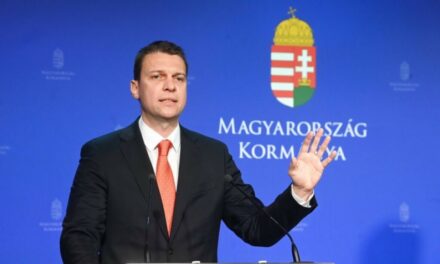If only they had a demagogue Péter Magyar, he would solve the emigration by slaughtering the hussars. Or not?
According to the president of the Romanian Medical Chamber, Daniel Coriu, the approximately 3,800 young people who graduate from medical school in Romania every year disappear from their sight, they don't even know where they practice, while the shortage of doctors could be solved with three thousand doctors a year.
"If we increased the number of employees by 3,000 per year, we would fill the shortfall very quickly"
in the Thursday evening program of Medika TV, quoted by News.ro. The doctor spoke about the doctors applying for the current professional certificate that allows them to practice abroad, and said that since 2016, before the salary increase, there were approximately 1,500 people every year who requested a certificate in preparation for leaving the country.
"After the wage increase in 2017, this trend gradually decreased. During the epidemic, in 2020-2021, their number reached 700, and then in 2022 it started to rise slightly, to around a thousand. About 830 such certificates were requested last year. However, this is only about the intention, we don't know if these people finally left, only that they applied for the certificate, we don't know if the process was finalized"
Coriu said.
He emphasized that the more than 3,000 young people who graduate from medical schools in Romania do not appear in the local health care system after completing their studies.
"We don't know anything about the graduates, the graduates of the medical faculties - we are talking about 3,800 foreign students - we don't know where they are, but we don't find them in the medical chambers. If we were to increase the number of employees by 3,000 per year, we would make up for the shortfall very quickly. That's not happening"
Daniel Coriu added.
Eurostat data, the fewest doctors practice in France, Belgium and Hungary among the EU member states. In Greece, on the other hand, there are twice as many doctors as here, but this does not necessarily mean better quality care, besides such statistics cannot be interpreted by themselves, since the quality of care is not only determined by the number of doctors, but also by many other indicators, such as the number of healthcare professionals, the it is determined by the rate of natural births, access options, waiting lists, patient satisfaction, the system of general practitioners, the size of the medicine fund, i.e. the organization of the entire system.
Featured image: Julio César Velásquez Mejía / Pixabay













